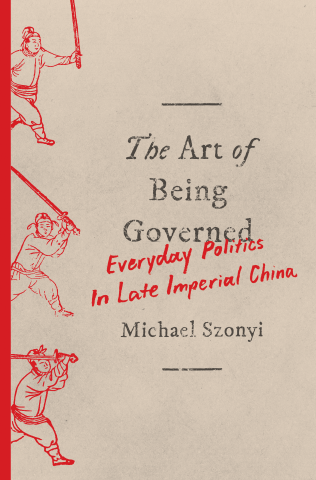
The Art of Being Governed :Everyday Politics in Late Imperial China
Author:Michael Szonyi(宋怡明)
Hardcover:328 pages
Publisher:Princeton University Press (November 2017)
Language:English
ISBN:9780691174518
About the book
How did ordinary people in the Ming dynasty (1368–1644) deal with the demands of the state? In The Art of Being Governed, Michael Szonyi explores the myriad ways that families fulfilled their obligations to provide a soldier to the army. The complex strategies they developed to manage their responsibilities suggest a new interpretation of an important period in China’s history as well as a broader theory of politics.
Using previously untapped sources, including lineage genealogies and internal family documents, Szonyi examines how soldiers and their families living on China’s southeast coast minimized the costs and maximized the benefits of meeting government demands for manpower. Families that had to provide a soldier for the army set up elaborate rules to ensure their obligation was fulfilled, and to provide incentives for the soldier not to desert his post. People in the system found ways to gain advantages for themselves and their families. For example, naval officers used the military’s protection to engage in the very piracy and smuggling they were supposed to suppress. Szonyi demonstrates through first hand accounts how subjects of the Ming state operated in a space between defiance and compliance, and how paying attention to this middle ground can help us better understand not only Ming China but also other periods and places.
Combining traditional scholarship with innovative fieldwork in the villages where descendants of Ming subjects still live, The Art of Being Governed illustrates the ways that arrangements between communities and the state hundreds of years ago have consequences and relevance for how we look at diverse cultures and societies, even today.
About the author
Michael Szonyi is professor of Chinese history and director of the Fairbank Center for Chinese Studies at Harvard University. He is a social historian of late imperial and modern China. His research focuses on the local history of southeast China, from the Ming dynasty to the twenty-first century, using a combination of traditional textual sources and ethnographic-style fieldwork.His books include The Art of Being Governed: Everyday Politics in Late Imperial China (Princeton, 2017); A Companion to Chinese History (Wiley, 2017); Practicing Kinship (Stanford, 2002) and Cold War Island: Quemoy on the Front Line (Cambridge, 2008; Chinese edition Taiwan University Press 2016).
Table of Contents
Illustrations
Dramatis Familiae
Introduction A Father Loses Three Sons to the Army: Everyday Politics in Ming China
PART I IN THE VILLAGE
1 A Younger Brother Inherits a Windfall: Conscription, Military Service, and Family Strategies
2 A Family Reunion Silences a Bully: New Social Relations between Soldiers and Their Kin
PART II IN THE GUARD
3 An Officer in Cahoots with Pirates: Coastal Garrisons and Maritime Smuggling
4 An Officer Founds a School: New Social Relations in the Guards
PART III IN THE MILITARY COLONY
5 A Soldier Curses a Clerk: Regulatory Arbitrage Strategies in the Military Colonies
6 A Temple with Two Gods: Managing Social Relations between Soldier-Farmers and Local Civilians
PART IV AFTER THE MING
7 A God Becomes an Ancestor: Post-Ming Legacies of the Military System
Conclusion
Acknowledgments
Glossary
Notes
Bibliography
Illustration Sources
Index
 The Art of Being Governed Everyday Politics in Late Imperial China.pdf
The Art of Being Governed Everyday Politics in Late Imperial China.pdf

